
Birdie Monk Holsclaw was born in 1948 in Staunton, Virginia; she died in 2010 in Gunbarrel, Colorado. Her career spanned thirty-five years and left an enduring legacy.
She was a founding member of the Colorado Genealogical Society’s Computer Interest Group and GENTECH’s Lexicon Working Group and made significant contributions to the development of new methodologies. Her vision led to the creation of the Black Oak Mapper—a software program that maps land descriptions. She also lent her expertise to land records. Another focus of Holsclaw’s research was historical studies, particularly records concerning schools for the deaf and blind.
Holsclaw was a renowned educator. Over the course of her career, she taught at institutions such as the Institute of Genealogy and Historical Research (IGHR) and the Salt Lake Institute of Genealogy (SLIG) and lectured at national conferences for NGS and the Federation of Genealogical Societies. She authored articles for prestigious genealogical journals including the NGS Quarterly and Professional Genealogy: A Manual for Researchers, Writers, Editors, Lecturers, and Librarians.
Perhaps her greatest and most lasting impact was on the careers of countless genealogists. As a mentor, she nurtured their careers, encouraging novices and professionals alike. Holsclaw deeply believed in the potential of others and generously offered them her knowledge, expertise, and support. Her impact on their careers was truly profound.


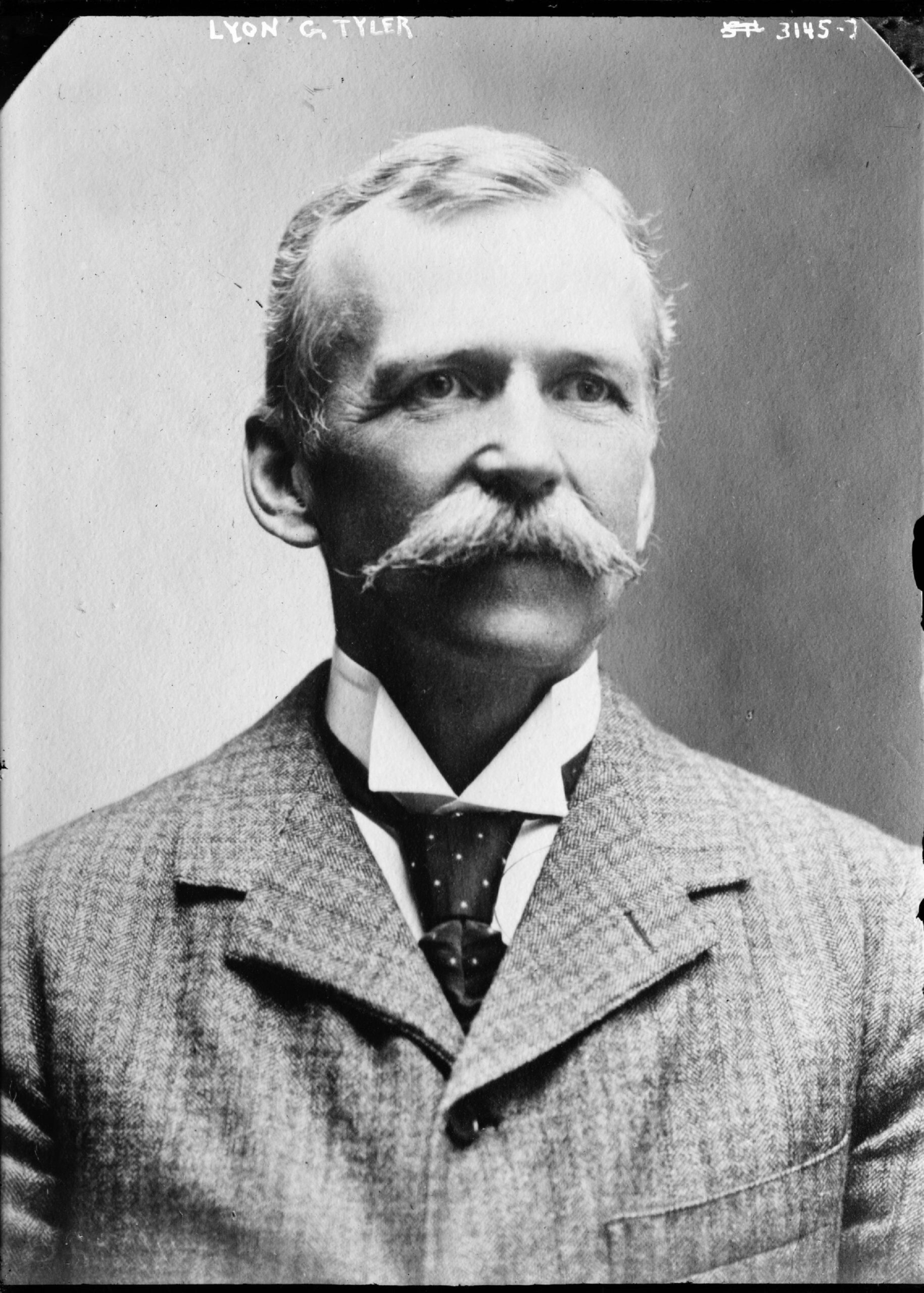
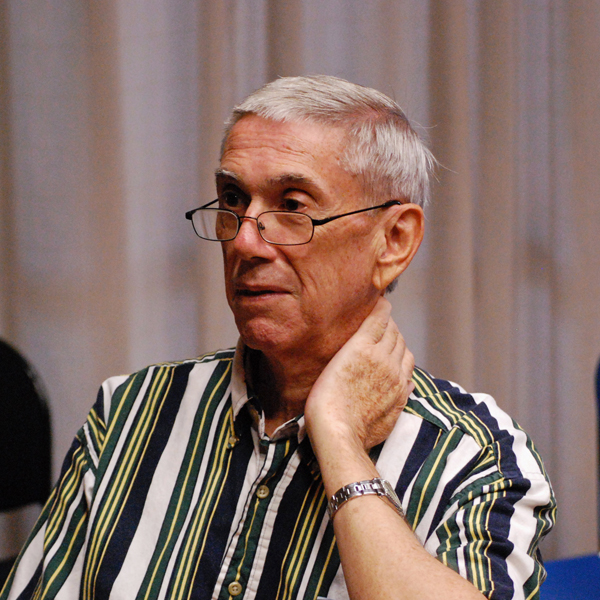 Lloyd DeWitt Bockstruck, FNGS, was born on 26 May 1945 in Vandalia, Fayette County, Illinois; he died on 23 May 2018 in Dallas, Texas. With a thirty-year tenure as supervisor of the Genealogy Section (1979-2009) at the Dallas Public Library, he established the library’s reputation as a leading genealogical collection in the United States—including records not widely available—with more than 100,000 books, over 40,000 rolls of microfilm, and nearly 20,000 microfiche. He compiled over fifty bibliographies covering various subjects including colonial Germans, church records, Hoosier genealogy, land memorials, military and pension records, probate records, Virginia Baptists, and many more.
Lloyd DeWitt Bockstruck, FNGS, was born on 26 May 1945 in Vandalia, Fayette County, Illinois; he died on 23 May 2018 in Dallas, Texas. With a thirty-year tenure as supervisor of the Genealogy Section (1979-2009) at the Dallas Public Library, he established the library’s reputation as a leading genealogical collection in the United States—including records not widely available—with more than 100,000 books, over 40,000 rolls of microfilm, and nearly 20,000 microfiche. He compiled over fifty bibliographies covering various subjects including colonial Germans, church records, Hoosier genealogy, land memorials, military and pension records, probate records, Virginia Baptists, and many more.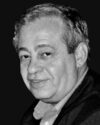 John Martino was born on 27 October 1936 in Brooklyn, New York; he died on 30 November 2015 in Huntington, New York. For more than twenty-two years (1993-2015), he was actively engaged in the field of genealogy. Martino spearheaded an expansive volunteer initiative to assist genealogists and researchers tracing individuals through some of the most populous cities and counties in the United States. As project coordinator, he played a key role in obtaining permission to use these records, fundraising, volunteer recruiting, distribution of copies of records to volunteers, and verification.
John Martino was born on 27 October 1936 in Brooklyn, New York; he died on 30 November 2015 in Huntington, New York. For more than twenty-two years (1993-2015), he was actively engaged in the field of genealogy. Martino spearheaded an expansive volunteer initiative to assist genealogists and researchers tracing individuals through some of the most populous cities and counties in the United States. As project coordinator, he played a key role in obtaining permission to use these records, fundraising, volunteer recruiting, distribution of copies of records to volunteers, and verification.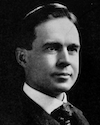
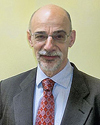
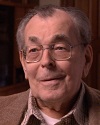
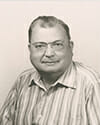 George Harrison Sanford King, FASG, (1914-1985) was a resident of Fredericksburg, Virginia, all of his life. He graduated from Virginia Tech in 1935 with a chemistry degree. As a young man he developed an interest in genealogy, emphasizing a scholarly approach to research and documentation. In the 1930s he along with others lobbied the Virginia General Assembly for funds to restore deteriorating records, for which all Virginia researchers are grateful.
George Harrison Sanford King, FASG, (1914-1985) was a resident of Fredericksburg, Virginia, all of his life. He graduated from Virginia Tech in 1935 with a chemistry degree. As a young man he developed an interest in genealogy, emphasizing a scholarly approach to research and documentation. In the 1930s he along with others lobbied the Virginia General Assembly for funds to restore deteriorating records, for which all Virginia researchers are grateful.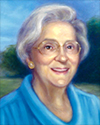 Mary Smith Fay, FASG, (1915–2000) was one of the country’s most eminent genealogists. She became a professional genealogist after retiring from the Shell Oil Company in 1969. Her research interests spanned the entire Eastern United States from New England to Texas, which led her to author two books and over three dozen articles, all of which highlighted her genealogical research skills. Her professional work included serving as genealogist for the Howard Hughes estate and investigating claims of those purporting to be his heirs. She was active in numerous genealogical societies, and lectured at both local and national genealogical conferences. Mary Fay was born in Burnt Prairie, Illinois on 27 August 1915; she died in Houston, Texas on 7 July 2000.
Mary Smith Fay, FASG, (1915–2000) was one of the country’s most eminent genealogists. She became a professional genealogist after retiring from the Shell Oil Company in 1969. Her research interests spanned the entire Eastern United States from New England to Texas, which led her to author two books and over three dozen articles, all of which highlighted her genealogical research skills. Her professional work included serving as genealogist for the Howard Hughes estate and investigating claims of those purporting to be his heirs. She was active in numerous genealogical societies, and lectured at both local and national genealogical conferences. Mary Fay was born in Burnt Prairie, Illinois on 27 August 1915; she died in Houston, Texas on 7 July 2000.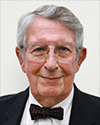 Peter Stebbins Craig, FASG, was born in Brooklyn, New York, on 30 September 1928 and died in Washington, D.C., on 26 November 2009. A devoted historian and relentless genealogist, he specialized in publishing genealogies of the first European settlers of southeastern Pennsylvania, Delaware, and New Jersey. This settlement, better known as New Sweden, began in 1638 along both sides of the Delaware River. His pioneering research and significant publications on the early Swedish settlers in the Delaware Valley earned him fellowships from both the American Society of Genealogists and the Genealogical Society of Pennsylvania in 1991. In recognition of his contributions to Swedish history, King Carl XVI Gustaf of Sweden bestowed on him the title of Knight First Class of the Royal Order of the Polar Star in 2002. He was awarded a Lifetime Achievement Award in 2009 by the Swedish Colonial Society in Philadelphia.
Peter Stebbins Craig, FASG, was born in Brooklyn, New York, on 30 September 1928 and died in Washington, D.C., on 26 November 2009. A devoted historian and relentless genealogist, he specialized in publishing genealogies of the first European settlers of southeastern Pennsylvania, Delaware, and New Jersey. This settlement, better known as New Sweden, began in 1638 along both sides of the Delaware River. His pioneering research and significant publications on the early Swedish settlers in the Delaware Valley earned him fellowships from both the American Society of Genealogists and the Genealogical Society of Pennsylvania in 1991. In recognition of his contributions to Swedish history, King Carl XVI Gustaf of Sweden bestowed on him the title of Knight First Class of the Royal Order of the Polar Star in 2002. He was awarded a Lifetime Achievement Award in 2009 by the Swedish Colonial Society in Philadelphia.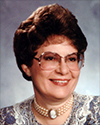 Marsha Hoffman Rising, FASG, was born 19 August 1945, in Kansas City, Missouri, and died in Springfield, Missouri on 17 February 2010. For thirty years she served the genealogical community in many roles: as president of the Federation of Genealogical Societies, vice president of the National Genealogical Society, as trustee for the Board for Certification of Genealogists, contributing editor to the National Genealogical Society Quarterly, The American Genealogist, the Federation of Genealogical Societies Forum, and Ozar’Kin, and as a faculty member of Samford University’s Institute of Genealogy and Historical Research. She becomes the thirty-first genealogist to be welcomed to the Hall of Fame.
Marsha Hoffman Rising, FASG, was born 19 August 1945, in Kansas City, Missouri, and died in Springfield, Missouri on 17 February 2010. For thirty years she served the genealogical community in many roles: as president of the Federation of Genealogical Societies, vice president of the National Genealogical Society, as trustee for the Board for Certification of Genealogists, contributing editor to the National Genealogical Society Quarterly, The American Genealogist, the Federation of Genealogical Societies Forum, and Ozar’Kin, and as a faculty member of Samford University’s Institute of Genealogy and Historical Research. She becomes the thirty-first genealogist to be welcomed to the Hall of Fame.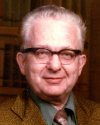 Donald Arleigh Sinclair was born 1 July 1916 in Fredonia, Kansas, and died in Highland Park, New Jersey, on 1 August 2004. For sixty-five years he served the Genealogical Society of New Jersey as trustee, corresponding secretary, vice president and president. He also was editor of the Genealogical Magazine of New Jersey: 1949–1966 and 1969–1973. He becomes the thirtieth genealogist to be welcomed to the Hall of Fame.
Donald Arleigh Sinclair was born 1 July 1916 in Fredonia, Kansas, and died in Highland Park, New Jersey, on 1 August 2004. For sixty-five years he served the Genealogical Society of New Jersey as trustee, corresponding secretary, vice president and president. He also was editor of the Genealogical Magazine of New Jersey: 1949–1966 and 1969–1973. He becomes the thirtieth genealogist to be welcomed to the Hall of Fame.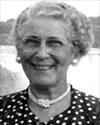 Florence Harlow Barclay, FASG, was born 5 June 1889 in Whitman, Massachusetts, and died there on 21 December 1980. She was one of the 20th century’s most prolific genealogists. The main body of her work consists of over fifty articles published in The American Genealogist between 1946 and 1971. Although nearly all her work deals with early families of Plymouth Colony, her clear writing style, use of primary source material, and most importantly, her outstanding analytical skills, make her articles models of genealogical problem-solving. Her articles continue to be cited regularly in the works of more recent genealogists. Mrs. Barclay’s body of work ranks her among the top echelon of American genealogists.
Florence Harlow Barclay, FASG, was born 5 June 1889 in Whitman, Massachusetts, and died there on 21 December 1980. She was one of the 20th century’s most prolific genealogists. The main body of her work consists of over fifty articles published in The American Genealogist between 1946 and 1971. Although nearly all her work deals with early families of Plymouth Colony, her clear writing style, use of primary source material, and most importantly, her outstanding analytical skills, make her articles models of genealogical problem-solving. Her articles continue to be cited regularly in the works of more recent genealogists. Mrs. Barclay’s body of work ranks her among the top echelon of American genealogists.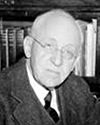 Dr. Earl Gregg Swem, FASG (1870–1965) for thirty-seven years devoted his career to the collection and publication of materials on Virginia and Virginians. He was an assistant librarian at the Virginia State Library for twelve years and then became the head of the William and Mary College Library, from which he retired in 1944.
Dr. Earl Gregg Swem, FASG (1870–1965) for thirty-seven years devoted his career to the collection and publication of materials on Virginia and Virginians. He was an assistant librarian at the Virginia State Library for twelve years and then became the head of the William and Mary College Library, from which he retired in 1944.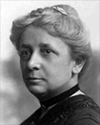 Josephine Cosette Mayou Stillman Frost was born April 17, 1864 in Warren, Masschusetts, and died December 31, 1942 in Brooklyn, New York. For more than forty years Josephine Cosette Mayou Stillman Frost became one of the most important contributors to New York genealogy during the first four decades of the twentieth century. She acquired a broad knowledge of early New York families, as reflected in her published genealogies which in many cases remain the most reliable accounts of these families. Although she did much of her work before today’s scholarly standards were fully developed, she recognized the importance of using and citing primary sources, and transcribed and abstracted an enormous number of those sources, particularly from Brooklyn and Long Island. New York genealogists today still rely on her transcripts and abstracts as so much of the information in them can be found nowhere else. She was the first woman to be named a Fellow of The New York Genealogical and Biographical Society. Her list of publications is impressive and includes a number devoted to specific families (including Frost) and a number on cemetery and church records. Her unpublished works are now in the NYG&B Collection at the New York Public Library.
Josephine Cosette Mayou Stillman Frost was born April 17, 1864 in Warren, Masschusetts, and died December 31, 1942 in Brooklyn, New York. For more than forty years Josephine Cosette Mayou Stillman Frost became one of the most important contributors to New York genealogy during the first four decades of the twentieth century. She acquired a broad knowledge of early New York families, as reflected in her published genealogies which in many cases remain the most reliable accounts of these families. Although she did much of her work before today’s scholarly standards were fully developed, she recognized the importance of using and citing primary sources, and transcribed and abstracted an enormous number of those sources, particularly from Brooklyn and Long Island. New York genealogists today still rely on her transcripts and abstracts as so much of the information in them can be found nowhere else. She was the first woman to be named a Fellow of The New York Genealogical and Biographical Society. Her list of publications is impressive and includes a number devoted to specific families (including Frost) and a number on cemetery and church records. Her unpublished works are now in the NYG&B Collection at the New York Public Library.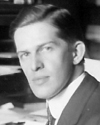 Albert Cook Myers (1874–1960) dedicated himself to the early history of Pennsylvania, especially to the history and genealogies of the Quakers. He was nominated by the Historical Society of Chester County, Pennsylvania, and the Genealogical Society of Pennsylvania. His monumental work on these families resulted in the publication of many well-known books and numerous articles. He left an important and well-sized legacy when he donated his life work to the Chester County Historical Society. Within the collection are transcriptions of marriages, land records, land maps, diaries, cemeteries, and courthouse records, all of which continue to be extremely useful to genealogists
Albert Cook Myers (1874–1960) dedicated himself to the early history of Pennsylvania, especially to the history and genealogies of the Quakers. He was nominated by the Historical Society of Chester County, Pennsylvania, and the Genealogical Society of Pennsylvania. His monumental work on these families resulted in the publication of many well-known books and numerous articles. He left an important and well-sized legacy when he donated his life work to the Chester County Historical Society. Within the collection are transcriptions of marriages, land records, land maps, diaries, cemeteries, and courthouse records, all of which continue to be extremely useful to genealogists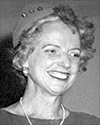 Rosalie Fellows Bailey, FASG, was born 7 August 1908 in Oak Bluffs, Massachusetts, as the second child of Theodorus and Alice Bailey. Most of her life was spent in New York City, where she died 6 June 1991. She was a leading authority on the history and records of the early families of New York City and the lower Hudson River Valley. Her published work is marked by a thorough knowledge of available source material and a careful analysis of the evidence. She delighted in difficult problems, and her ability to analyze was of the highest order. One can find many articles she wrote in the New York Genealogical and Biographical Record. Articles can also be found in the National Genealogical Society Quarterly and the Pennsylvania Genealogical Magazine.
Rosalie Fellows Bailey, FASG, was born 7 August 1908 in Oak Bluffs, Massachusetts, as the second child of Theodorus and Alice Bailey. Most of her life was spent in New York City, where she died 6 June 1991. She was a leading authority on the history and records of the early families of New York City and the lower Hudson River Valley. Her published work is marked by a thorough knowledge of available source material and a careful analysis of the evidence. She delighted in difficult problems, and her ability to analyze was of the highest order. One can find many articles she wrote in the New York Genealogical and Biographical Record. Articles can also be found in the National Genealogical Society Quarterly and the Pennsylvania Genealogical Magazine.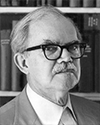 Willard Calvin Heiss, FASG (1921–1988) an Indiana Quaker scholar, attended Indiana University and for 25 years was administrator of the Records and Microfilm Division of the City of Indianapolis. He also served as chairman of the Family History Section of the Indiana Historical Society and editor of its publication, Genealogy. He was a pre-eminent authority on Quaker history and genealogy and was a popular lecturer. He wrote genealogical columns for the Indianapolis Times and the Indianapolis News, as well as articles for a number of genealogical periodicals. He is perhaps most well known for the seven volumes of abstracts of all Indiana Quaker monthly meetings established before 1875, that he published over a fifteen year period.
Willard Calvin Heiss, FASG (1921–1988) an Indiana Quaker scholar, attended Indiana University and for 25 years was administrator of the Records and Microfilm Division of the City of Indianapolis. He also served as chairman of the Family History Section of the Indiana Historical Society and editor of its publication, Genealogy. He was a pre-eminent authority on Quaker history and genealogy and was a popular lecturer. He wrote genealogical columns for the Indianapolis Times and the Indianapolis News, as well as articles for a number of genealogical periodicals. He is perhaps most well known for the seven volumes of abstracts of all Indiana Quaker monthly meetings established before 1875, that he published over a fifteen year period.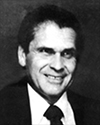 Born in 1936, Lowell Volkel was a Danville, Illinois High School teacher whose interest in genealogy began at an early age. He moved to Springfield in 1970 to become an archivist at the Illinois State Archives. Few know how much influence he had with his work there. From the time he joined the Archives staff in 1970 until his death, he worked with the Illinois State Genealogical Society, the Illinois State Archives, and various record keepers, to make Illinois records available for research. He set a precedent for other states to follow and influenced their attitudes towards record access.
Born in 1936, Lowell Volkel was a Danville, Illinois High School teacher whose interest in genealogy began at an early age. He moved to Springfield in 1970 to become an archivist at the Illinois State Archives. Few know how much influence he had with his work there. From the time he joined the Archives staff in 1970 until his death, he worked with the Illinois State Genealogical Society, the Illinois State Archives, and various record keepers, to make Illinois records available for research. He set a precedent for other states to follow and influenced their attitudes towards record access.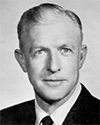 Walter Lee Sheppard, Jr., FASG (1911–2000) a resident of Pennsylvania and a chemical engineer, was nominated by the Genealogical Society of Pennsylvania. His primary areas of genealogical research were New England, the Mid-Atlantic States, and feudal British genealogy. His publications adhered as closely as possible to original records. He had an acute power of analysis and many of his articles provided lessons in genealogical research for novices. He insisted on documentation and was very emphatic about this in his book reviews. In addition to being a writer and contributing editor for the Pennsylvania Genealogy Magazine and the National Genealogical Society Quarterly, he lectured at some of the early national conferences.
Walter Lee Sheppard, Jr., FASG (1911–2000) a resident of Pennsylvania and a chemical engineer, was nominated by the Genealogical Society of Pennsylvania. His primary areas of genealogical research were New England, the Mid-Atlantic States, and feudal British genealogy. His publications adhered as closely as possible to original records. He had an acute power of analysis and many of his articles provided lessons in genealogical research for novices. He insisted on documentation and was very emphatic about this in his book reviews. In addition to being a writer and contributing editor for the Pennsylvania Genealogy Magazine and the National Genealogical Society Quarterly, he lectured at some of the early national conferences.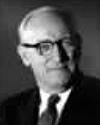 Dr. Kenn Stryker-Rodda, FASG, FNGS (7 July 1903–29 June 1990), a resident of New Jersey most of his life, was nominated by the American Society of Genealogists, the Genealogical Society of New Jersey, and the New York Genealogical and Biographical Society. He was a pioneer genealogical educator and lecturer, and authored many books and articles. In 1964 he served as a Charter Trustee for the Board for Certification of Genealogists. Dr. Stryker-Rodda also served as president of the Genealogical Society of New Jersey, the American Society of Genealogists, and the National Genealogical Society. He spent more than thirty years as an associate editor, first with the Genealogical Magazine of New Jersey and later with the New York Genealogical and Biographical Record. Between 1960 and 1981, he was elected a fellow of six societies—the American Society of Genealogists, the National Genealogical Society, the Genealogical Society of New Jersey, the Holland Society of New York, the New York Genealogical and Biographical Society and the New Jersey Historical Society.
Dr. Kenn Stryker-Rodda, FASG, FNGS (7 July 1903–29 June 1990), a resident of New Jersey most of his life, was nominated by the American Society of Genealogists, the Genealogical Society of New Jersey, and the New York Genealogical and Biographical Society. He was a pioneer genealogical educator and lecturer, and authored many books and articles. In 1964 he served as a Charter Trustee for the Board for Certification of Genealogists. Dr. Stryker-Rodda also served as president of the Genealogical Society of New Jersey, the American Society of Genealogists, and the National Genealogical Society. He spent more than thirty years as an associate editor, first with the Genealogical Magazine of New Jersey and later with the New York Genealogical and Biographical Record. Between 1960 and 1981, he was elected a fellow of six societies—the American Society of Genealogists, the National Genealogical Society, the Genealogical Society of New Jersey, the Holland Society of New York, the New York Genealogical and Biographical Society and the New Jersey Historical Society.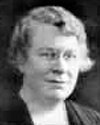 During the early twentieth century, Mary Lovering Holman, FASG (1868–1947) published, as sole author, or coauthor, a series of compiled genealogies on New England Families. These included The Scott Genealogy; The Ancestors and Descendants of Robert Clements of Leicestershire and Warwickshire, England; Ancestors and Descendants of John Coney of Boston, England and Boston, Massachusetts; Ancestors and Descendants of Philip Bullen of Jersey, England, and Charlestown, Massachusetts; and Descendants of William Sherman of Marshfield, Massachusetts. Each was a model of sound genealogical judgment and painstaking research in original records.
During the early twentieth century, Mary Lovering Holman, FASG (1868–1947) published, as sole author, or coauthor, a series of compiled genealogies on New England Families. These included The Scott Genealogy; The Ancestors and Descendants of Robert Clements of Leicestershire and Warwickshire, England; Ancestors and Descendants of John Coney of Boston, England and Boston, Massachusetts; Ancestors and Descendants of Philip Bullen of Jersey, England, and Charlestown, Massachusetts; and Descendants of William Sherman of Marshfield, Massachusetts. Each was a model of sound genealogical judgment and painstaking research in original records.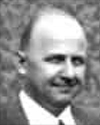 Herbert Furman Seversmith, Ph.D., FASG, FNGS (1904–1967) was originally named Herbert Francis Smith, but he had his name legally changed in 1936 when he assumed a surname based on his Dutch immigrant ancestor Claes Severtszen Smith. He joined the National Genealogical Society in 1929 and served in a number of capacities including president (1952–1953). In 1942 he was elected as the thirty-first Fellow of the American Society of Genealogists. Sixteen years later, in 1958, he was elected a Fellow of the National Genealogical Society.
Herbert Furman Seversmith, Ph.D., FASG, FNGS (1904–1967) was originally named Herbert Francis Smith, but he had his name legally changed in 1936 when he assumed a surname based on his Dutch immigrant ancestor Claes Severtszen Smith. He joined the National Genealogical Society in 1929 and served in a number of capacities including president (1952–1953). In 1942 he was elected as the thirty-first Fellow of the American Society of Genealogists. Sixteen years later, in 1958, he was elected a Fellow of the National Genealogical Society.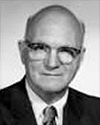 Milton Rubincam, FASG, FNGS (1909–1997) was one of the most prominent and influential genealogists of the 20th Century. He was actively engaged in the field of genealogy for 67 years, publishing many periodical articles, lecturing at countless conferences and seminars and serving as an officer in several major genealogical organizations. He was also a lecturer for the Samford University Institute of Genealogical and Historical Research and the Smithsonian Institute, and lecturer and director for the National Institute on Genealogical Research for the National Archives.
Milton Rubincam, FASG, FNGS (1909–1997) was one of the most prominent and influential genealogists of the 20th Century. He was actively engaged in the field of genealogy for 67 years, publishing many periodical articles, lecturing at countless conferences and seminars and serving as an officer in several major genealogical organizations. He was also a lecturer for the Samford University Institute of Genealogical and Historical Research and the Smithsonian Institute, and lecturer and director for the National Institute on Genealogical Research for the National Archives.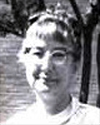 Hannah Benner Roach, FASG (1907–1976) was an editor, officer, director, and fellow of the Genealogical Society of Pennsylvania. Her early and continued association with the Society led to extensive writing, teaching and lecturing on genealogical sources and methods, always emphasizing the principles of accurate documentation. Ms. Roach published extensively for the Genealogical Society of Pennsylvania, including many articles in the Pennsylvania Genealogical Magazine. She was also a research associate for the William Penn Papers from 1969 through 1975. Forty-one volumes of the Hannah Benner Roach Collection exist at the Genealogical Society of Pennsylvania—a testament to her dedicated work. Additionally, her unpublished writings include Names from Philadelphia Newspapers to About 1800, compiled on more than 7,800 cards and donated to the American Philosophical Society.
Hannah Benner Roach, FASG (1907–1976) was an editor, officer, director, and fellow of the Genealogical Society of Pennsylvania. Her early and continued association with the Society led to extensive writing, teaching and lecturing on genealogical sources and methods, always emphasizing the principles of accurate documentation. Ms. Roach published extensively for the Genealogical Society of Pennsylvania, including many articles in the Pennsylvania Genealogical Magazine. She was also a research associate for the William Penn Papers from 1969 through 1975. Forty-one volumes of the Hannah Benner Roach Collection exist at the Genealogical Society of Pennsylvania—a testament to her dedicated work. Additionally, her unpublished writings include Names from Philadelphia Newspapers to About 1800, compiled on more than 7,800 cards and donated to the American Philosophical Society.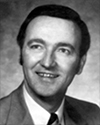 Richard Stephen Lackey, FASG (1941–1983) of Jackson and Forest, Mississippi, was nominated by the American Society of Genealogists. Richard Lackey made his mark in many areas of genealogy. He was an author/compiler of standards for genealogical writing, and of Mississippi source material. He lectured extensively, and served on the faculty of the Institute of Genealogy and Historical Research at Samford University for many years. In addition, he was a founder and officer of the Houston Genealogical Institute and the Association for Genealogical Education. For eight years, he served as the editor of the Mississippi Genealogical Exchange.
Richard Stephen Lackey, FASG (1941–1983) of Jackson and Forest, Mississippi, was nominated by the American Society of Genealogists. Richard Lackey made his mark in many areas of genealogy. He was an author/compiler of standards for genealogical writing, and of Mississippi source material. He lectured extensively, and served on the faculty of the Institute of Genealogy and Historical Research at Samford University for many years. In addition, he was a founder and officer of the Houston Genealogical Institute and the Association for Genealogical Education. For eight years, he served as the editor of the Mississippi Genealogical Exchange.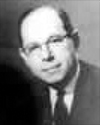 Rabbi Malcolm H. Stern, FASG, FNGS (1915–1994) was nominated by the American Society of Genealogists, the Jewish Genealogical Society of New York, and twenty-four other Jewish genealogical societies. Rabbi Stern was a founder of the first Jewish Genealogical Society in America, the New York-based Jewish Genealogical Society, Inc., and served as its president from 1979 to 1984 and from 1986 to 1989. Under his leadership similar Jewish societies came to be established worldwide resulting in over seventy societies as of 1999.
Rabbi Malcolm H. Stern, FASG, FNGS (1915–1994) was nominated by the American Society of Genealogists, the Jewish Genealogical Society of New York, and twenty-four other Jewish genealogical societies. Rabbi Stern was a founder of the first Jewish Genealogical Society in America, the New York-based Jewish Genealogical Society, Inc., and served as its president from 1979 to 1984 and from 1986 to 1989. Under his leadership similar Jewish societies came to be established worldwide resulting in over seventy societies as of 1999.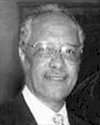 James Dent Walker, FNGS (9 June 1928–6 October 1993) of Washington, D.C., was nominated by the Afro-American Historical and Genealogical Society (National), Washington, D.C., the Prince George’s County, Maryland Chapter of the Afro-American Historical and Genealogical Society, the District of Columbia Genealogical Society, the Afro-American Genealogical and Historical Society of Chicago, and the International Society of Sons & Daughters of Slave Ancestry. The Federation of Genealogical Societies endorsed his nomination. Mr. Walker was the founder and a president of the Afro-American Historical and Genealogical Society (National) which, in 1999, has twenty-three chapters throughout the United States. He was also the founder and a president of the District of Columbia Genealogical Society. He was a fellow and second vice president of the National Genealogical Society. During his thirty years of employment at the National Archives and Records Service, Mr. Walker served as a genealogist, research consultant, Supervisor of Military Records, Director of Local History and Genealogical Programs, and Director of the Institute of Genealogical Research at American University. He was particularly noted for his knowledge of military and pension records covering the period of the Revolutionary War through the Civil War. In addition he exhibited an outstanding ability to uncover sources of genealogical importance to persons of African American descent engaged in researching their family lineage. Mr. Walker’s principal publications included Black Genealogy: How to Begin and portions of the National Archives publication Ethnic Genealogy with Jessie C. Smith, ed. He also helped Alex Haley with genealogical research that later became the basis for Haley’s best selling saga, Roots. Following his government retirement in 1986, James Walker lectured extensively and served as a research consultant to numerous historical and genealogical organizations.
James Dent Walker, FNGS (9 June 1928–6 October 1993) of Washington, D.C., was nominated by the Afro-American Historical and Genealogical Society (National), Washington, D.C., the Prince George’s County, Maryland Chapter of the Afro-American Historical and Genealogical Society, the District of Columbia Genealogical Society, the Afro-American Genealogical and Historical Society of Chicago, and the International Society of Sons & Daughters of Slave Ancestry. The Federation of Genealogical Societies endorsed his nomination. Mr. Walker was the founder and a president of the Afro-American Historical and Genealogical Society (National) which, in 1999, has twenty-three chapters throughout the United States. He was also the founder and a president of the District of Columbia Genealogical Society. He was a fellow and second vice president of the National Genealogical Society. During his thirty years of employment at the National Archives and Records Service, Mr. Walker served as a genealogist, research consultant, Supervisor of Military Records, Director of Local History and Genealogical Programs, and Director of the Institute of Genealogical Research at American University. He was particularly noted for his knowledge of military and pension records covering the period of the Revolutionary War through the Civil War. In addition he exhibited an outstanding ability to uncover sources of genealogical importance to persons of African American descent engaged in researching their family lineage. Mr. Walker’s principal publications included Black Genealogy: How to Begin and portions of the National Archives publication Ethnic Genealogy with Jessie C. Smith, ed. He also helped Alex Haley with genealogical research that later became the basis for Haley’s best selling saga, Roots. Following his government retirement in 1986, James Walker lectured extensively and served as a research consultant to numerous historical and genealogical organizations.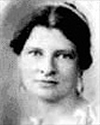 Dr. Jean Stephenson, FASG (29 August 1892–22 January 1979) of Waco, Tex., and Washington, D.C. was nominated by the American Society of Genealogists and the National Institute on Genealogical Research. Her educational accomplishments included J.D., L.L.M., M.P.L., and S.J.D. degrees from the National University Law School. She was a member of the Bar of the District of Columbia. Jean Stephenson was a pioneer genealogical educator who played a major role in the establishment and growth of institutions critical to the field today. Her principal activities included the American Society of Genealogists (fellow and secretary), the National Genealogical Society (fellow, councilor, chairman of publications, editor of the NGS Quarterly), the Board for Certification of Genealogists (cofounder and president), the Institute on Genealogical Research (co-director), Samford University’s Institute of Genealogy and Historical Research (founding instructor), the National Society DAR (chairman of the Genealogical Advisory Committee of the Registrar General), American Association for State and Local History (charter member and councilor), Society of American Archivists (charter member), and numerous others. Dr. Stephenson’s publications included Heraldry for the American Genealogist (NGS Special Publication no. 25), Scotch-Irish Migration to South Carolina, 1772: Rev. William Martin and His Five Shiploads of Settlers, and her extensive work as associate editor of Genealogical Research: Methods and Sources (first edition).
Dr. Jean Stephenson, FASG (29 August 1892–22 January 1979) of Waco, Tex., and Washington, D.C. was nominated by the American Society of Genealogists and the National Institute on Genealogical Research. Her educational accomplishments included J.D., L.L.M., M.P.L., and S.J.D. degrees from the National University Law School. She was a member of the Bar of the District of Columbia. Jean Stephenson was a pioneer genealogical educator who played a major role in the establishment and growth of institutions critical to the field today. Her principal activities included the American Society of Genealogists (fellow and secretary), the National Genealogical Society (fellow, councilor, chairman of publications, editor of the NGS Quarterly), the Board for Certification of Genealogists (cofounder and president), the Institute on Genealogical Research (co-director), Samford University’s Institute of Genealogy and Historical Research (founding instructor), the National Society DAR (chairman of the Genealogical Advisory Committee of the Registrar General), American Association for State and Local History (charter member and councilor), Society of American Archivists (charter member), and numerous others. Dr. Stephenson’s publications included Heraldry for the American Genealogist (NGS Special Publication no. 25), Scotch-Irish Migration to South Carolina, 1772: Rev. William Martin and His Five Shiploads of Settlers, and her extensive work as associate editor of Genealogical Research: Methods and Sources (first edition).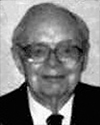 John Insley Coddington, FASG (30 June 1902–10 May 1991), of Nice, France, and Bordentown, New Jersey, was nominated for election to the National Genealogy Hall of Fame by the American Society of Genealogists. Mr Coddington, A.B., A.M., Harvard, was one of the most widely known and distinguished genealogists of the 20th century. He has been described as the Dean of American Genealogists following the death of Donald Lines Jacobus in 1970. He was a prolific writer, sharing his research in more than 200 articles in the New England Historical and Genealogical Register, the American Genealogist, the National Genealogical Society Quarterly, and various other genealogical publications. He became one of the foremost exponents of documentary evidence and gained an international reputation through his published research on pre-American ancestors and royal and noble genealogy. Mr. Coddington was a co-founder of the American Society of Genealogists, an editor
John Insley Coddington, FASG (30 June 1902–10 May 1991), of Nice, France, and Bordentown, New Jersey, was nominated for election to the National Genealogy Hall of Fame by the American Society of Genealogists. Mr Coddington, A.B., A.M., Harvard, was one of the most widely known and distinguished genealogists of the 20th century. He has been described as the Dean of American Genealogists following the death of Donald Lines Jacobus in 1970. He was a prolific writer, sharing his research in more than 200 articles in the New England Historical and Genealogical Register, the American Genealogist, the National Genealogical Society Quarterly, and various other genealogical publications. He became one of the foremost exponents of documentary evidence and gained an international reputation through his published research on pre-American ancestors and royal and noble genealogy. Mr. Coddington was a co-founder of the American Society of Genealogists, an editor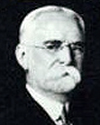 George Ernest Bowman (5 January 1860–5 September 1941), of Manchester, New Hampshire, and Boston, Massachusetts, was nominated for election to the National Genealogy Hall of Fame by the General Society of Mayflower Descendants and the Society of Mayflower Descendants in the State of Illinois. Mr. Bowman, B.A., Yale, Class of 1883, has been described as the greatest genealogical scholar of Plymouth Colony. He was the founding secretary of the Massachusetts Society of Mayflower Descendants from 1896 to 1941. In 1897 he was one of the founders of the General Society of Mayflower Descendants. He was the founding editor of The Mayflower Descendant: A Quarterly Magazine of Pilgrim Genealogy and History from 1899 to 1937. Mr. Bowman’s 45 years of research on Mayflower descendants served as a standard for other researchers and provided extensive material for publication and further research. His numerous publications and files were the basis for the mammoth Five Generations Project of the General Society of Mayflower Descendants. The Bowman File microfiche collection of the Massachusetts Society contains over 20,000 pages of research data from the Bowman manuscript collection of pilgrim genealogies. Since 1996 is the centennial year of the Massachusetts Society of Mayflower Descendants, it is especially appropriate that its distinguished founder, George Ernest Bowman, has been elected to the National Genealogy Hall of Fame.
George Ernest Bowman (5 January 1860–5 September 1941), of Manchester, New Hampshire, and Boston, Massachusetts, was nominated for election to the National Genealogy Hall of Fame by the General Society of Mayflower Descendants and the Society of Mayflower Descendants in the State of Illinois. Mr. Bowman, B.A., Yale, Class of 1883, has been described as the greatest genealogical scholar of Plymouth Colony. He was the founding secretary of the Massachusetts Society of Mayflower Descendants from 1896 to 1941. In 1897 he was one of the founders of the General Society of Mayflower Descendants. He was the founding editor of The Mayflower Descendant: A Quarterly Magazine of Pilgrim Genealogy and History from 1899 to 1937. Mr. Bowman’s 45 years of research on Mayflower descendants served as a standard for other researchers and provided extensive material for publication and further research. His numerous publications and files were the basis for the mammoth Five Generations Project of the General Society of Mayflower Descendants. The Bowman File microfiche collection of the Massachusetts Society contains over 20,000 pages of research data from the Bowman manuscript collection of pilgrim genealogies. Since 1996 is the centennial year of the Massachusetts Society of Mayflower Descendants, it is especially appropriate that its distinguished founder, George Ernest Bowman, has been elected to the National Genealogy Hall of Fame.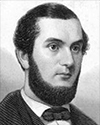 Colonel Joseph Lemuel Chester (30 April 1821–26 May 1882), of Norwich, Connecticut, was nominated for election to the National Genealogy Hall of Fame by the Maine Genealogical Society. Colonel Chester, LL.D., D.C.L., is the only American genealogist and antiquarian commemorated with a tablet at Westminster Abbey and the only genealogist honored by Oxford University with an honorary degree specifically recognizing his genealogical achievements. Columbia College also awarded him an honorary doctorate in recognition of those achievements. His specialty was the systematic examination of English records to develop the origins of American settlers. His 24 years of research in England made him a pioneer in the transcription of entire classes of records, such as parish registers, resulting in over 100 large volumes. Colonel Chester devoted a large portion of his time in England to an annotated transcript of the entire Register of Marriages, Baptisms, and Burials in Westminster Abbey, which was published in 1876 by the Harleian Society, and for which Queen Victoria complimented him. While he was conducting his research he was recognized as the outstanding authority in the field of Angle-American genealogy, and he was elected fellow of the Royal Historical Society. He was appointed to his ever treasured military rank of colonel while serving the governor of Pennsylvania during the 1850s.
Colonel Joseph Lemuel Chester (30 April 1821–26 May 1882), of Norwich, Connecticut, was nominated for election to the National Genealogy Hall of Fame by the Maine Genealogical Society. Colonel Chester, LL.D., D.C.L., is the only American genealogist and antiquarian commemorated with a tablet at Westminster Abbey and the only genealogist honored by Oxford University with an honorary degree specifically recognizing his genealogical achievements. Columbia College also awarded him an honorary doctorate in recognition of those achievements. His specialty was the systematic examination of English records to develop the origins of American settlers. His 24 years of research in England made him a pioneer in the transcription of entire classes of records, such as parish registers, resulting in over 100 large volumes. Colonel Chester devoted a large portion of his time in England to an annotated transcript of the entire Register of Marriages, Baptisms, and Burials in Westminster Abbey, which was published in 1876 by the Harleian Society, and for which Queen Victoria complimented him. While he was conducting his research he was recognized as the outstanding authority in the field of Angle-American genealogy, and he was elected fellow of the Royal Historical Society. He was appointed to his ever treasured military rank of colonel while serving the governor of Pennsylvania during the 1850s.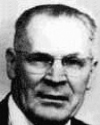 Archibald Fowler Bennett, FASG (17 March 1896–28 August 1965), of American Fork, Utah, was nominated for election to the National Genealogy Hall of Fame by the Genealogical Society of Utah. Mr. Bennett, B.A., M.A., University of Utah, served as General Secretary of the Genealogical Society of Utah from 1928 to 1961. For more than thirty years he was also head librarian of what became the Family History Library in Salt Lake City. He was largely responsible for beginning the genealogical records microfilming program of The Church of Jesus Christ of Latter-day Saints. He began the system of branch genealogical libraries (now called Family History Centers) to make records available to researchers everywhere. A prolific author and popular educator, Bennett also developed the use of the pedigree chart and family group sheet, the forms still used by researchers today. In 1961 he was elected a fellow of the American Society of Genealogists. Most genealogists, sitting at microfilm readers in more than 2,000 family history centers found worldwide, may not have heard of Archibald Bennett, but they are deeply influenced by him. In this, the centennial year of the Genealogical Society of Utah, it is fitting that this unique man, who gave so much to the entire genealogical community, has been elected to the National Genealogy Hall of Fame.
Archibald Fowler Bennett, FASG (17 March 1896–28 August 1965), of American Fork, Utah, was nominated for election to the National Genealogy Hall of Fame by the Genealogical Society of Utah. Mr. Bennett, B.A., M.A., University of Utah, served as General Secretary of the Genealogical Society of Utah from 1928 to 1961. For more than thirty years he was also head librarian of what became the Family History Library in Salt Lake City. He was largely responsible for beginning the genealogical records microfilming program of The Church of Jesus Christ of Latter-day Saints. He began the system of branch genealogical libraries (now called Family History Centers) to make records available to researchers everywhere. A prolific author and popular educator, Bennett also developed the use of the pedigree chart and family group sheet, the forms still used by researchers today. In 1961 he was elected a fellow of the American Society of Genealogists. Most genealogists, sitting at microfilm readers in more than 2,000 family history centers found worldwide, may not have heard of Archibald Bennett, but they are deeply influenced by him. In this, the centennial year of the Genealogical Society of Utah, it is fitting that this unique man, who gave so much to the entire genealogical community, has been elected to the National Genealogy Hall of Fame.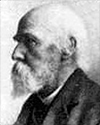 Henry FitzGilbert Waters (29 March 1833–16 August 1913) of Salem Massachusetts, was nominated for election to the National Genealogy Hall of Fame by the Maine Genealogical Society. Mr. Waters was a graduate of the Harvard College Class of 1855 and the recipient of an honorary M.A. degree from Harvard in 1885 in recognition of his work as an eminent antiquary. Following his service in the Civil War and a period as as educator and superintendent of the public schools of Salem he embarked upon what was to become the major focus of his genealogical pursuits. For nearly two decades he served in England as an agent of the New England Historic Genealogical Society researching English records relating to the pedigrees of colonial Americans. His significant findings were published in almost every issue of the New England Historical and Genealogical Register from July 1883 to January 1899 and included final determinations of the ancestries of John Harvard, George Washington, and Roger Williams. George Andrews Moriarty, Jr. (elected to the National Genealogy Hall of Fame in 1990) wrote in the Essex Institute’s memoir of Henry FitzGilbert Waters (Essex Institute Historical Collections 50 (1914): 1–5) that “The death of Henry FitzGilbert Waters marked the close of an epoch in the development of American antiquarianism for he was man who found the study of genealogy and antiquities among us an art and left it a science.”
Henry FitzGilbert Waters (29 March 1833–16 August 1913) of Salem Massachusetts, was nominated for election to the National Genealogy Hall of Fame by the Maine Genealogical Society. Mr. Waters was a graduate of the Harvard College Class of 1855 and the recipient of an honorary M.A. degree from Harvard in 1885 in recognition of his work as an eminent antiquary. Following his service in the Civil War and a period as as educator and superintendent of the public schools of Salem he embarked upon what was to become the major focus of his genealogical pursuits. For nearly two decades he served in England as an agent of the New England Historic Genealogical Society researching English records relating to the pedigrees of colonial Americans. His significant findings were published in almost every issue of the New England Historical and Genealogical Register from July 1883 to January 1899 and included final determinations of the ancestries of John Harvard, George Washington, and Roger Williams. George Andrews Moriarty, Jr. (elected to the National Genealogy Hall of Fame in 1990) wrote in the Essex Institute’s memoir of Henry FitzGilbert Waters (Essex Institute Historical Collections 50 (1914): 1–5) that “The death of Henry FitzGilbert Waters marked the close of an epoch in the development of American antiquarianism for he was man who found the study of genealogy and antiquities among us an art and left it a science.”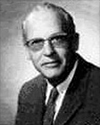 Meredith Bright Colket, Jr., FASG (1912–1985), of Strafford, Pennsylvania, and Cleveland Heights, Ohio, was nominated for election to the NGS Hall of Fame by the Western Reserve Historical Society of Cleveland, Ohio. Meredith Colket, A.B., A.M., Haverford College, Litt.D., Baldwin-Wallace College, was an archivist and genealogy specialist at the National Archives, founder and first director of what is now called the National Institute on Genealogical Research in Washington, D.C., and a fellow of the American Society of Genealogists, the National Genealogical Society, the Society of American Archivists, and the Society of Genealogists, London. He was executive director and executive director emeritus of the Western Reserve Historical Society, a founding member of the American Association for State and Local History, vice-chairman of the Board for Certification of Genealogists, and associate editor of both The American Genealogist and the National Genealogical Society Quarterly. His numerous published works included Founders of Early American Families, Guide to Genealogical Records in the National Archives, with Frank E. Bridgers, and Creating a Worthwhile Family Genealogy. Dr. Colket’s distinguished leadership and achievements were highly significant in the development of high standards in American genealogical research.
Meredith Bright Colket, Jr., FASG (1912–1985), of Strafford, Pennsylvania, and Cleveland Heights, Ohio, was nominated for election to the NGS Hall of Fame by the Western Reserve Historical Society of Cleveland, Ohio. Meredith Colket, A.B., A.M., Haverford College, Litt.D., Baldwin-Wallace College, was an archivist and genealogy specialist at the National Archives, founder and first director of what is now called the National Institute on Genealogical Research in Washington, D.C., and a fellow of the American Society of Genealogists, the National Genealogical Society, the Society of American Archivists, and the Society of Genealogists, London. He was executive director and executive director emeritus of the Western Reserve Historical Society, a founding member of the American Association for State and Local History, vice-chairman of the Board for Certification of Genealogists, and associate editor of both The American Genealogist and the National Genealogical Society Quarterly. His numerous published works included Founders of Early American Families, Guide to Genealogical Records in the National Archives, with Frank E. Bridgers, and Creating a Worthwhile Family Genealogy. Dr. Colket’s distinguished leadership and achievements were highly significant in the development of high standards in American genealogical research.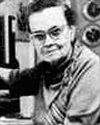 Lucy Mary Kellogg, FASG (1899–1973) of Janesville, Wisconsin, and Brighton, Michigan, was nominated for election to the National Genealogy Hall of Fame by the Michigan Genealogical Council and separately endorsed by thirty-two genealogical and historical societies in Michigan. She was also nominated by the Genealogical Society of Utah, the Illinois State Genealogical Society, the New England Historic Genealogical Society, the Central New York Genealogical Society, and the Louisa St. Clair Chapter, NSDAR. Ms. Kellogg, B.A., University of Wisconsin, was the editor of the Five Generations Project for the General Society of Mayflower Descendants during the latter years of her life. She was a founder of the Michigan Genealogical Council, a charter trustee of the Board for Certification of Genealogists, a fellow of the American Society of Genealogists, editor of the Detroit Society for Genealogical Research Magazine, and the author of numerous genealogical articles. Lucy Mary Kellogg’s tireless efforts to raise the standards of genealogical research by her many lectures, her published work, and her selfless devotion to local genealogical societies, as well as to the larger, nationally known organizations, have touched the lives of amateurs and professionals alike.
Lucy Mary Kellogg, FASG (1899–1973) of Janesville, Wisconsin, and Brighton, Michigan, was nominated for election to the National Genealogy Hall of Fame by the Michigan Genealogical Council and separately endorsed by thirty-two genealogical and historical societies in Michigan. She was also nominated by the Genealogical Society of Utah, the Illinois State Genealogical Society, the New England Historic Genealogical Society, the Central New York Genealogical Society, and the Louisa St. Clair Chapter, NSDAR. Ms. Kellogg, B.A., University of Wisconsin, was the editor of the Five Generations Project for the General Society of Mayflower Descendants during the latter years of her life. She was a founder of the Michigan Genealogical Council, a charter trustee of the Board for Certification of Genealogists, a fellow of the American Society of Genealogists, editor of the Detroit Society for Genealogical Research Magazine, and the author of numerous genealogical articles. Lucy Mary Kellogg’s tireless efforts to raise the standards of genealogical research by her many lectures, her published work, and her selfless devotion to local genealogical societies, as well as to the larger, nationally known organizations, have touched the lives of amateurs and professionals alike.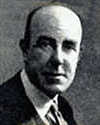 George Andrews Moriarty, Jr., FASG (1883–1968) of Newport, Rhode Island, and Ogunquit, Maine, was nominated for election to the National Genealogy Hall of Fame by the Genealogical Society of Utah, Salt Lake City, and the American Society of Genealogists, Washington, D.C. George Moriarty, A.B., M.A., LL.B. Harvard, began his career with the U.S. Department of State foreign service and later practiced law. Beginning in 1927, he devoted the rest of his life to historical and genealogical study in which he achieved international eminence as an authority on English and Norman medieval families. As a result of his research, a stream of articles flowed from his pen. His articles published in the New England Historical and Genealogical Register numbered 134, and he provided more than 75 articles to The American Genealogist. His many scholarly writings, some highly critical, often appeared in more than fifteen other publications in the United States and abroad. Some of his material remains in manuscript in George Andrews Moriarty Collection at the New England Historic Genealogical Society in Boston. Often honored during his lifetime, he was a fellow of the American Society of Genealogists, the Society of Genealogists, London, and the Society of Antiquaries London. He was a founder and the first president of the Descendants of the Illegitimate Sons and Daughters of the Kings of Britain.
George Andrews Moriarty, Jr., FASG (1883–1968) of Newport, Rhode Island, and Ogunquit, Maine, was nominated for election to the National Genealogy Hall of Fame by the Genealogical Society of Utah, Salt Lake City, and the American Society of Genealogists, Washington, D.C. George Moriarty, A.B., M.A., LL.B. Harvard, began his career with the U.S. Department of State foreign service and later practiced law. Beginning in 1927, he devoted the rest of his life to historical and genealogical study in which he achieved international eminence as an authority on English and Norman medieval families. As a result of his research, a stream of articles flowed from his pen. His articles published in the New England Historical and Genealogical Register numbered 134, and he provided more than 75 articles to The American Genealogist. His many scholarly writings, some highly critical, often appeared in more than fifteen other publications in the United States and abroad. Some of his material remains in manuscript in George Andrews Moriarty Collection at the New England Historic Genealogical Society in Boston. Often honored during his lifetime, he was a fellow of the American Society of Genealogists, the Society of Genealogists, London, and the Society of Antiquaries London. He was a founder and the first president of the Descendants of the Illegitimate Sons and Daughters of the Kings of Britain.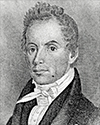 John Farmer (1789–1838), of Chelmsford, Massachusetts, and his adopted state of New Hampshire, was nominated by the Maine Genealogical Society. John Farmer, M.A., Dartmouth College, is recognized as the first genealogical scholar in the United States. One of his greatest achievements was the publication of the Genealogical Register of the First Settlers of New England in 1829. His lasting influence on genealogy was early recognized by the New England Historic Genealogical Society, which began the first issue of its Register in January 1847 with a portrait and memoir of Mr. Farmer. In that issue, John Farmer was referred to as the most distinguished genealogist and antiquary of this country and as the father of genealogy in New England.
John Farmer (1789–1838), of Chelmsford, Massachusetts, and his adopted state of New Hampshire, was nominated by the Maine Genealogical Society. John Farmer, M.A., Dartmouth College, is recognized as the first genealogical scholar in the United States. One of his greatest achievements was the publication of the Genealogical Register of the First Settlers of New England in 1829. His lasting influence on genealogy was early recognized by the New England Historic Genealogical Society, which began the first issue of its Register in January 1847 with a portrait and memoir of Mr. Farmer. In that issue, John Farmer was referred to as the most distinguished genealogist and antiquary of this country and as the father of genealogy in New England.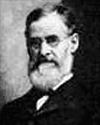 Gilbert Cope (1840–1928), of Chester County, Pennsylvania, was nominated by The Genealogical Society of Pennsylvania. He has been called “the father of genealogical research in Pennsylvania” and he was the leading authority of his time on Quaker genealogy. His contribution to genealogy went beyond his published family genealogies; he did more than anyone before him to preserve Quaker records and make them available to other researchers. Much of his work remains in manuscript and is preserved in the collections of The Historical Society of Pennsylvania and The Genealogical Society of Pennsylvania in Philadelphia. The work of Gilbert Cope exemplifies the genealogical standards expected of and practiced by serious genealogists today.
Gilbert Cope (1840–1928), of Chester County, Pennsylvania, was nominated by The Genealogical Society of Pennsylvania. He has been called “the father of genealogical research in Pennsylvania” and he was the leading authority of his time on Quaker genealogy. His contribution to genealogy went beyond his published family genealogies; he did more than anyone before him to preserve Quaker records and make them available to other researchers. Much of his work remains in manuscript and is preserved in the collections of The Historical Society of Pennsylvania and The Genealogical Society of Pennsylvania in Philadelphia. The work of Gilbert Cope exemplifies the genealogical standards expected of and practiced by serious genealogists today.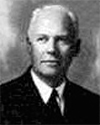 Walter Goodwin Davis, FASG (1885–1966), of Portland, Maine, was nominated by the American Society of Genealogists and the Maine Genealogical Society. Recognized as one of the leaders of the modern school of genealogy in the United States, he was described as “demonstrating the diligence, discipline and investigative skills of historical scholarship at its best.” He was a graduate of the University and Harvard Law School. His many books and articles early demonstrated how one should conduct research in original source materials, assemble the evidence, evaluate it, and present it in standard format. During his lifetime, he published separate volumes on the ancestries of each of his sixteen great-great-grandparents. In 1985, on the occasion of the centennial of his birth, the Maine Genealogical Society published Danny D. Smith’s, Walter Goodwin Davis: A Scholar’s Unique Contribution to New England Genealogy, with An Index to the Principal Surnames in His Works.
Walter Goodwin Davis, FASG (1885–1966), of Portland, Maine, was nominated by the American Society of Genealogists and the Maine Genealogical Society. Recognized as one of the leaders of the modern school of genealogy in the United States, he was described as “demonstrating the diligence, discipline and investigative skills of historical scholarship at its best.” He was a graduate of the University and Harvard Law School. His many books and articles early demonstrated how one should conduct research in original source materials, assemble the evidence, evaluate it, and present it in standard format. During his lifetime, he published separate volumes on the ancestries of each of his sixteen great-great-grandparents. In 1985, on the occasion of the centennial of his birth, the Maine Genealogical Society published Danny D. Smith’s, Walter Goodwin Davis: A Scholar’s Unique Contribution to New England Genealogy, with An Index to the Principal Surnames in His Works.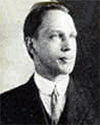 Donald Lines Jacobus, FASG (1887–1970), of New Haven, Connecticut, was the first person elected to the National Genealogy Hall of Fame. He was nominated for this honor by the American Society of Genealogists, the Genealogical Society of Utah, and the DuPage County (IL) Genealogical Society. During his lifetime, Jacobus was widely regarded as the dean of American genealogists, and he is recognized as the founder of the modern school of genealogy in the United States. He was the editor and publisher of The American Genealogist for forty-three years, and he may have been the most prolific genealogical writer of any generation. His writings include the classic, Genealogy as Pastime and Profession. On his death, he was described by his colleague Milton Rubincam, as “the man who more than any other single individual elevated genealogy to the high degree of scholarship it now occupies.”
Donald Lines Jacobus, FASG (1887–1970), of New Haven, Connecticut, was the first person elected to the National Genealogy Hall of Fame. He was nominated for this honor by the American Society of Genealogists, the Genealogical Society of Utah, and the DuPage County (IL) Genealogical Society. During his lifetime, Jacobus was widely regarded as the dean of American genealogists, and he is recognized as the founder of the modern school of genealogy in the United States. He was the editor and publisher of The American Genealogist for forty-three years, and he may have been the most prolific genealogical writer of any generation. His writings include the classic, Genealogy as Pastime and Profession. On his death, he was described by his colleague Milton Rubincam, as “the man who more than any other single individual elevated genealogy to the high degree of scholarship it now occupies.”